Meet the Hartman Sisters of Pennsylvania
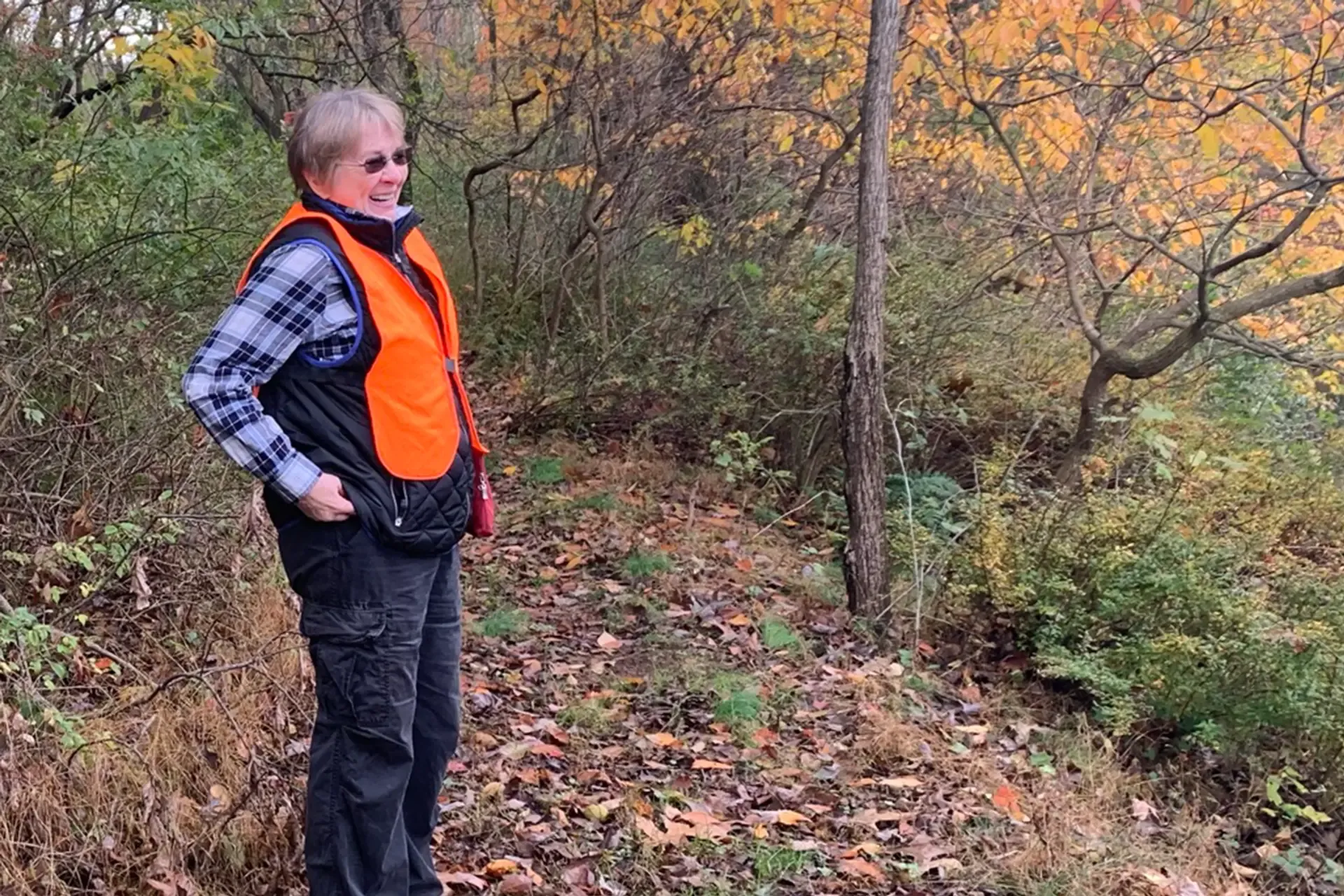
Louise Hartman stands in the woods she and her two sisters inherited from their dad in Irish Valley, PA. The Hartman sisters admit they made many mistakes in the early years of owning the property, including a select cut that took the healthiest, most desirable trees. They are thankful to now have the support of the Family Forest Carbon Program to assist them with future management decisions and costs.
For the Hartman sisters, Chestnut Farm is a family heirloom. Like a handmade rocking chair, or well-used quilt, it has a feeling of home and memories. That is why it is so important to Margaret, Louise and Jeannie to hold on to it and keep it healthy for the next generation of Hartman family members.
Their 250+ acres was once a chestnut plantation, with acres and acres of large nut-filled trees down in Irish Valley, PA. But the chestnut blight of the early 1900’s wiped out the trees, causing the land to be converted to pasture and sold to the sisters’ grandfather for farming. Over the decades the land was a special place for family gatherings, favorite pastimes and relaxing - passed on from generation to generation. In the early 2000’s, Margaret, Louise and Jeannie inherited the property, becoming the third generation to own it. By this time, the land was back in trees – chestnut again, as well as oak, aspen, hickory, white pine and much more.
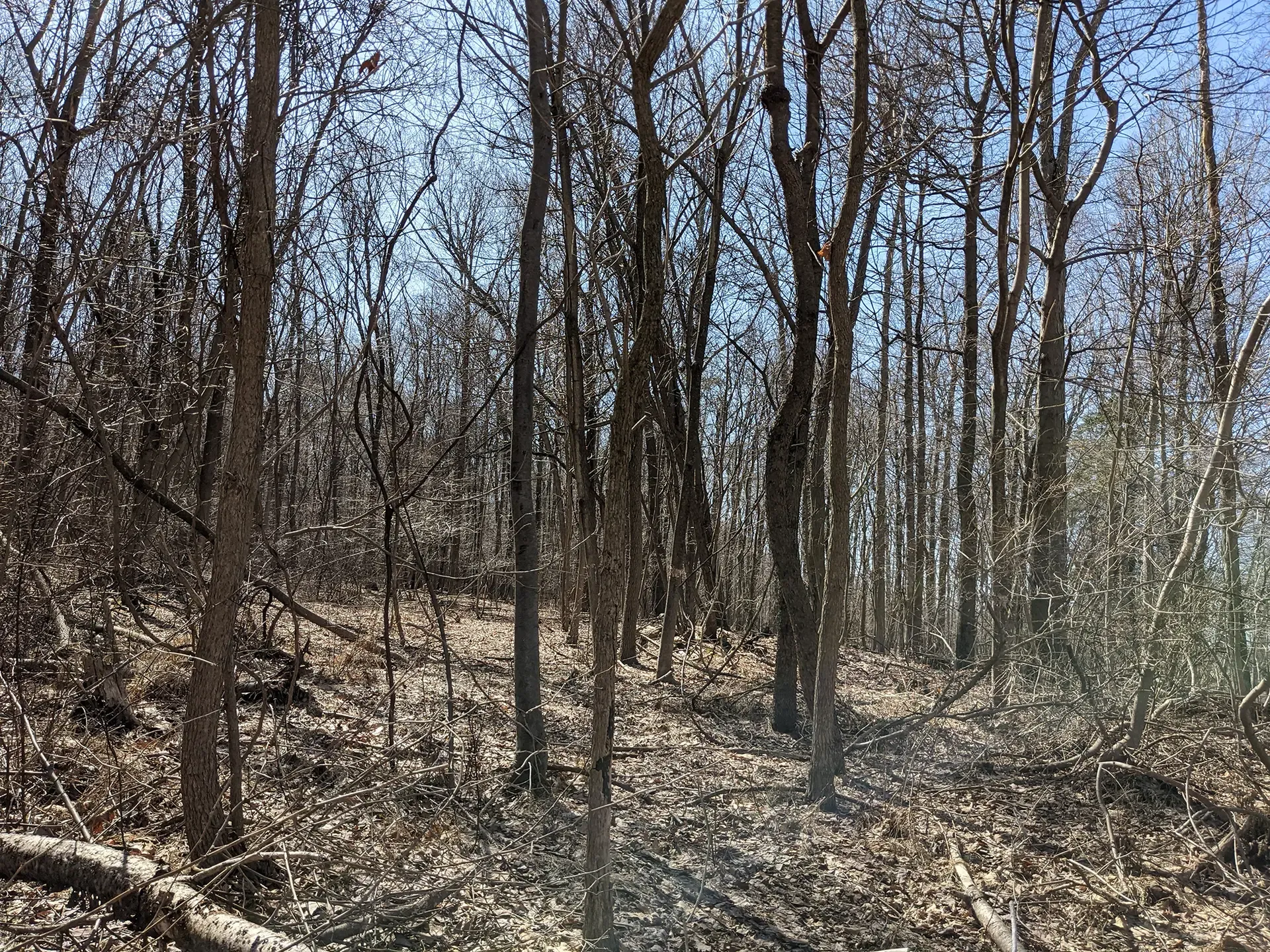
A picture of the Hartman sisters forest in Pennsylvania.
As new owners of a forest, they made many mistakes in the early years. First, they were approached by a logger for a select cut. They were interested in the income from the cut to help pay the taxes, but did not know best practices, so let the logger take the more desirable, quality trees and leave the lesser ones - a common unsustainable practice known as high grading. Then, they tried to create a fruit orchard, but it did not take off as they did not know how to plant them or where was best. They were also approached by natural gas exploration groups, but decided against them, worried it would leave the land worse off than it was.
They knew they needed help to avoid future mistakes and learn how to care for their forest and find solutions that met their financial needs and improved the land.
As each of the sisters began to retire, they had more time to focus on being good stewards and in 2019, Margaret and Louise decided to attend a landowners’ conference at Pennsylvania State University. Among other courses, Louise eagerly attended a session on carbon markets - interested in how they could generate income to cover the taxes and other improvement projects, while tackling a personal passion of hers - climate change.
After the session, she signed up to be contacted about a new program – the Family Forest Carbon Program – and decided to meet with two foresters with the program. Kevin Yoder and Dana Dowling met with the three sisters and walked the property with them. The sisters were so impressed with their knowledge and advice, and asked questions nonstop during the visit. Kevin and Dana graciously answered all, happy to help. They worked with them to put together a comprehensive 10-year management plan that focuses on growing the best trees longer to improve the health of the forest and to sequester more carbon. In return, the program compensates them.
Louise says, “We are so glad to have found the Family Forest Carbon Program. The plan they have created for us is so comprehensive in how it addresses the forest from the trees, invasive species, the quality and quantity of trees, the wildlife, your water quality and how it helps the planet and climate change. I am so thankful that we were able to become a part of it.”
Interested in learning more about the Family Forest Carbon Program? If you are a forest owner interested in the program, visit our landowner portal. If you are interested in certified carbon credits as part of your corporate climate strategy, please reach out to John Ringer at ffcp_partnerships@forestfoundation.org.
Related Articles
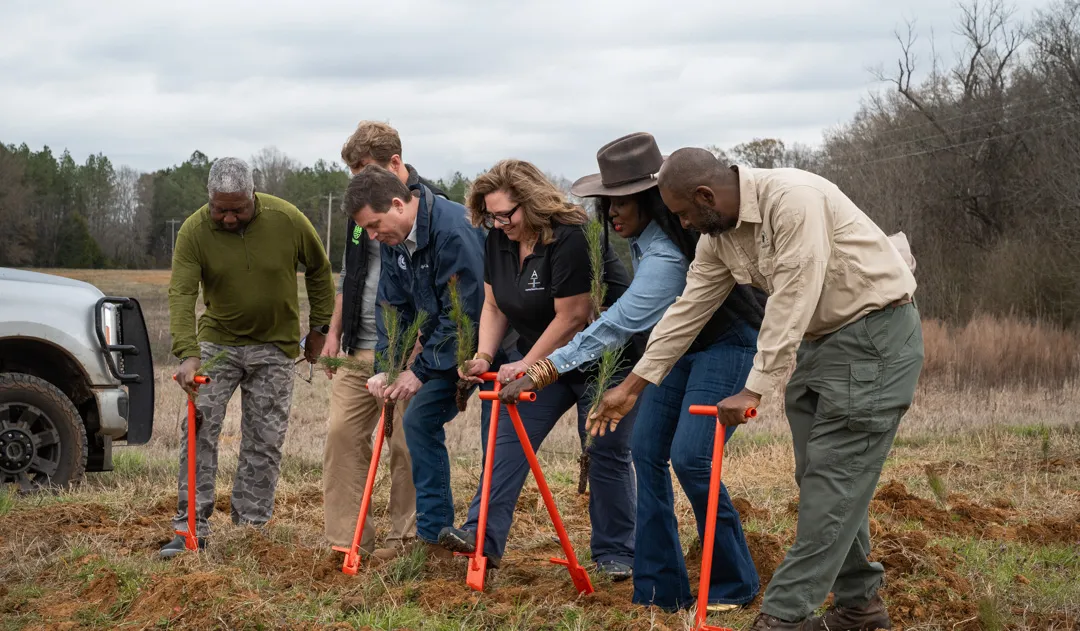
February 12, 2026
Fields & Forests Plants its Millionth Tree
AFF celebrated the millionth planting on recently enrolled landowner Portia Fulford’s property near Montgomery, Alabama. AFF was joined by several key partners, including the Arbor Day Foundation, the Alabama Forestry Commission, the Alabama Forestry Association, Help for Landowners, and Funga.
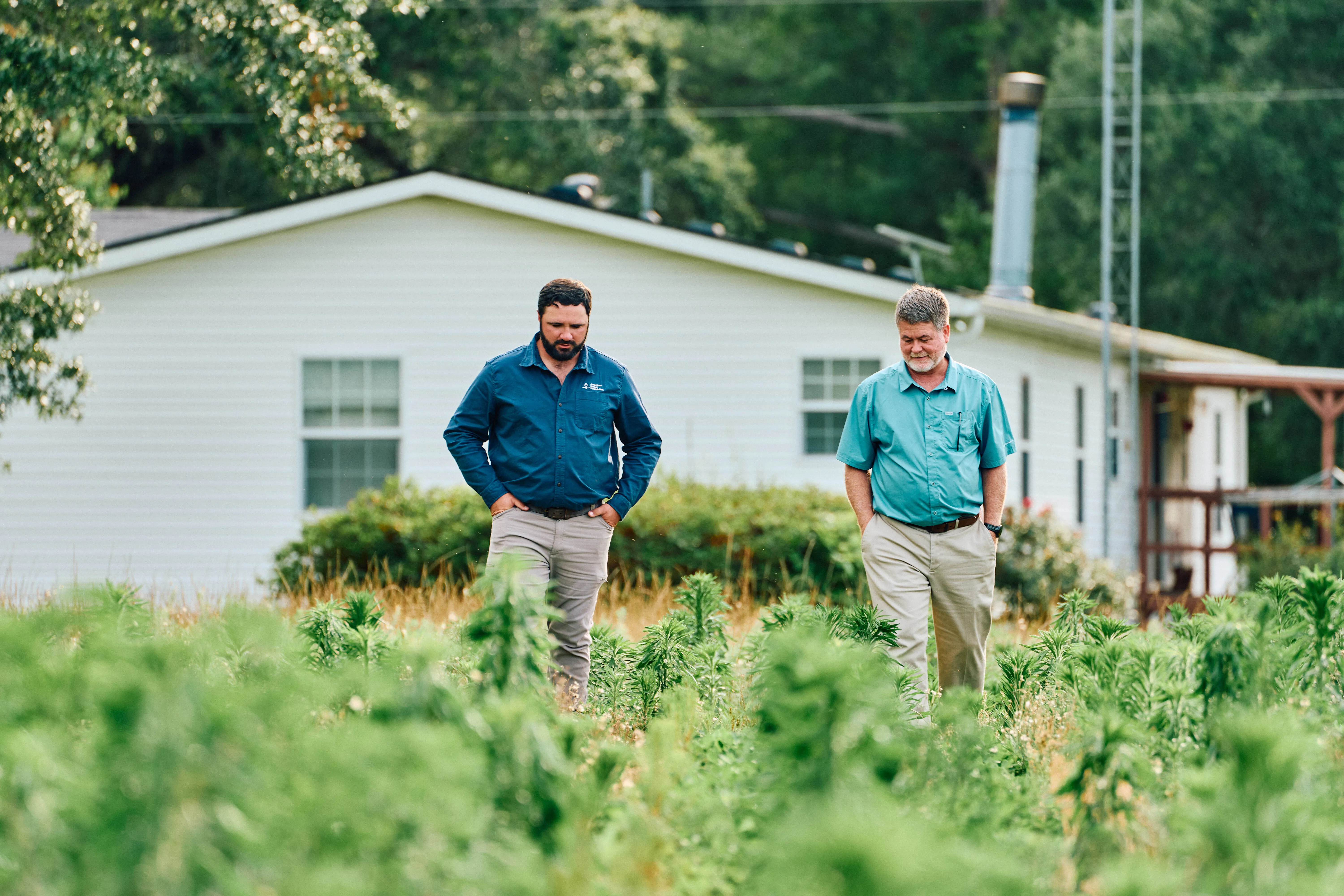
February 11, 2026
Building Momentum & Impact: A Look Back at 2025
As we look back on 2025, one thing is clear: the Family Forest Carbon Program community continues to grow in both scale and impact. From enrolling new landowners to delivering verified carbon credits and expanding landowner support, this past year brought significant milestones for family-owned forests across the country.
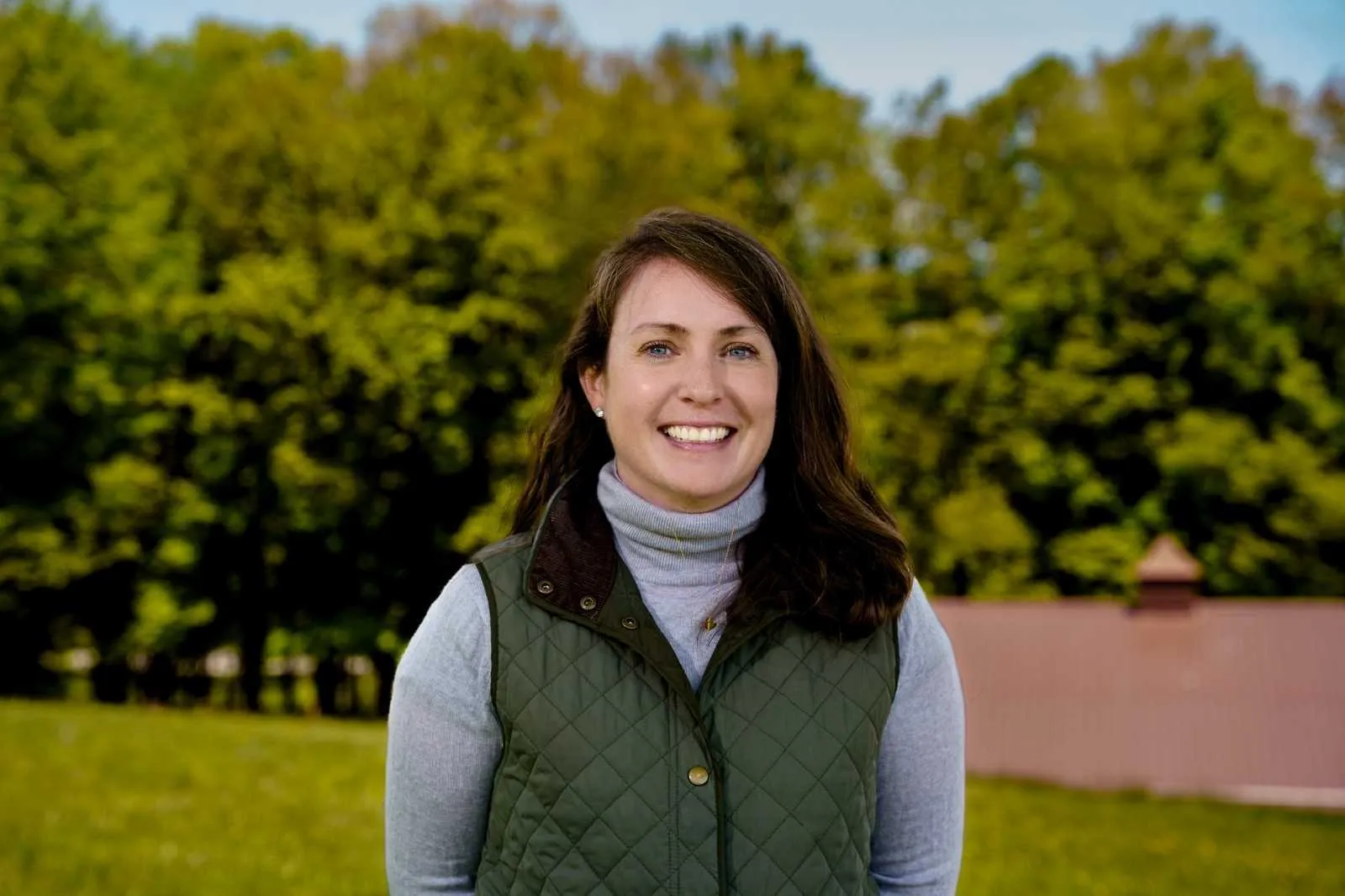
February 3, 2026
Reflecting on 2025 and Looking Ahead
Happy New Year from the Family Forest Carbon Program team! It’s been a tumultuous year, to say the least, so I hope you’ve all been able to find some peace, prosperity and perspective enjoying your farms, fields, and forests with your families. As I reflect on our community, it’s clear we have so much to be grateful for.